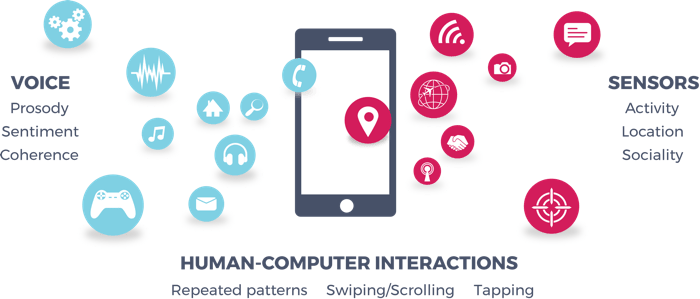On Mental Health and the advent of Digital Phenotyping
 ___
___
Building the Thermometer for Mental Health (The Dana Foundation):
“Imagine that you visit your physician complaining of a fever and, rather than taking out a thermometer, they begin hovering their “educated hands” over you. Gradually, they press down against your arm to gain a full impression of your skin’s temperature and the “deeper seated combustions.” Removing their hand, they look closely at your appearance and pronounce their assessment: you do, in fact, have a fever. You might (justifiably) be dubious…
Just as the thermometer provided a standardized, objective measurement for detecting fever, tools to quantify health and disease parameters have transformed medicine in almost every major disease area—electrocardiograms for heart disease, blood glucose for diabetes, and, recently, genetic diagnostic tests for cancer. But when it comes to brain health, and in the case of mental illness especially, progress has been uneven. Although direct brain imaging instruments exist, most (MRI, PET, MEG) are expensive, inaccessible to many, rarely useful for deciding the treatment of an individual patient, and time-intensive to administer. While they can identify brain lesions in multiple sclerosis or dementia, they are less useful in mental disorders. This lack of measurement matters because, to borrow a truism from business, “we don’t manage well what we don’t measure well.”
Keep reading Building the Thermometer for Mental Health over at The Dana Foundation.
News in Context:
- Mindstrong Health identifies digital biomarkers of cognitive function using smartphone data
- Five reasons the future of brain enhancement is digital, pervasive and (hopefully) bright
- Learn more and discuss at the 2019 SharpBrains Virtual Summit: The Future of Brain Health (February 26–28th)
- Presentation by Dr. Tom Insel, President and Co-Founder of Mindstrong Health, at the 2017 SharpBrains Virtual Summit (December 5–7th):


